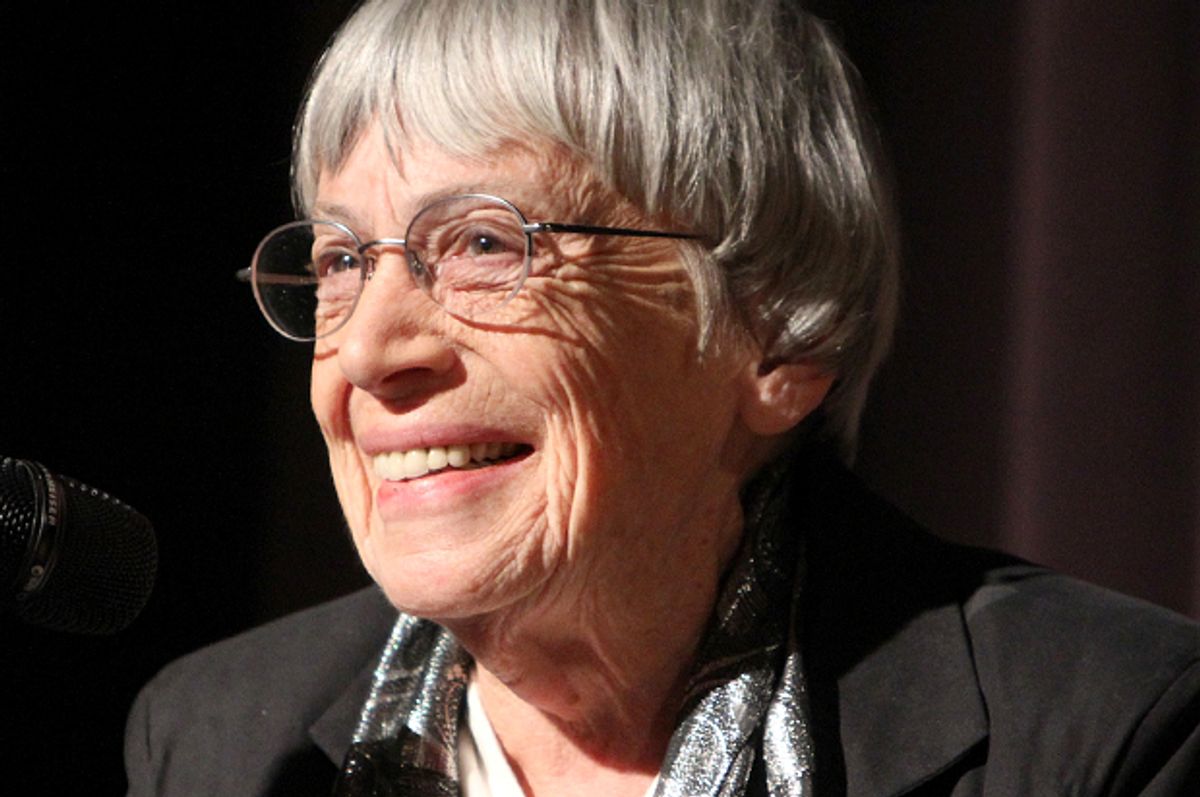Ursula K. Le Guin, an American literary legend who wrote science fiction, fantasy, essays and poetry, died on Monday in her Portland, Oregon, home at 88.
Le Guin’s son, Theo Downes-Le Guin, confirmed her death but didn’t specify a cause, according to the New York Times. He said she had been in “poor health” for several months.
Perhaps best-known for “The Left Hand of Darkness,” a science fiction novel published in 1969 set in the Hainish universe, Le Guin often used science fiction to transgress normalized conceptions of gender and sexuality. In "The Left Hand of Darkness," protagonist Genly Ai is at first consumed by sexist beliefs, but learns from an androgynous humanoid culture known as the Gethenians.
“In 1968, I don’t think anybody could have imagined an Earthman feeling at home with and welcoming the alien gender situation of Gethen. I did think about sending an Earthwoman there—and she would have reacted very differently from Genly,” Le Guin said about the novel in a 2009 interview with the New Yorker.
“The Left Hand of Darkness” won both the Nebula and Hugo Awards.
Le Guin wrote more than 20 novels, 100 short stories, seven essay collections and more than a dozen books of poetry. Despite many of her protagonists being men, Le Guin has always considered herself a feminist, but was always confident in questioning societal conditioning and how it has impacted the human perspective on gender and sexuality. Indeed, she dives deeper into this in her famous 1976 essay “Is Gender Necessary?”
Le Guin was born in Berkeley, California, on Oct. 21, 1929. Her parents were both anthropologists. Her mother, Theodora Quinn Kroeber, wrote the biography “Ishi in Two Worlds.”
In 2014, Le Guin was awarded the National Book Foundation Medal for Distinguished Contribution to American Letters. The Library of America has recognized her work, though Le Guin emphasized in a New York Times interview that she didn’t only want to be known as a science fiction writer.
“There’s some innate arrogance here: I want to do it my way,” Le Guin told the New York Times. “I don’t want to be reduced to being ‘the sci-fi writer.’ People are always trying to push me off the literary scene, and to hell with it.”
When lauding her words, Le Guin's literary peers never refrained from sharing how her writing challenged their thinking. Michael Chabon once said Le Guin’s writing “helped shape my way of thinking about men and women, love and war. She was and remains a central figure for me.”

Shares